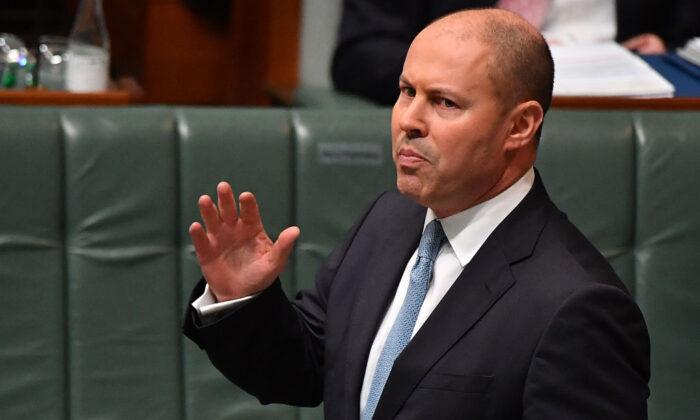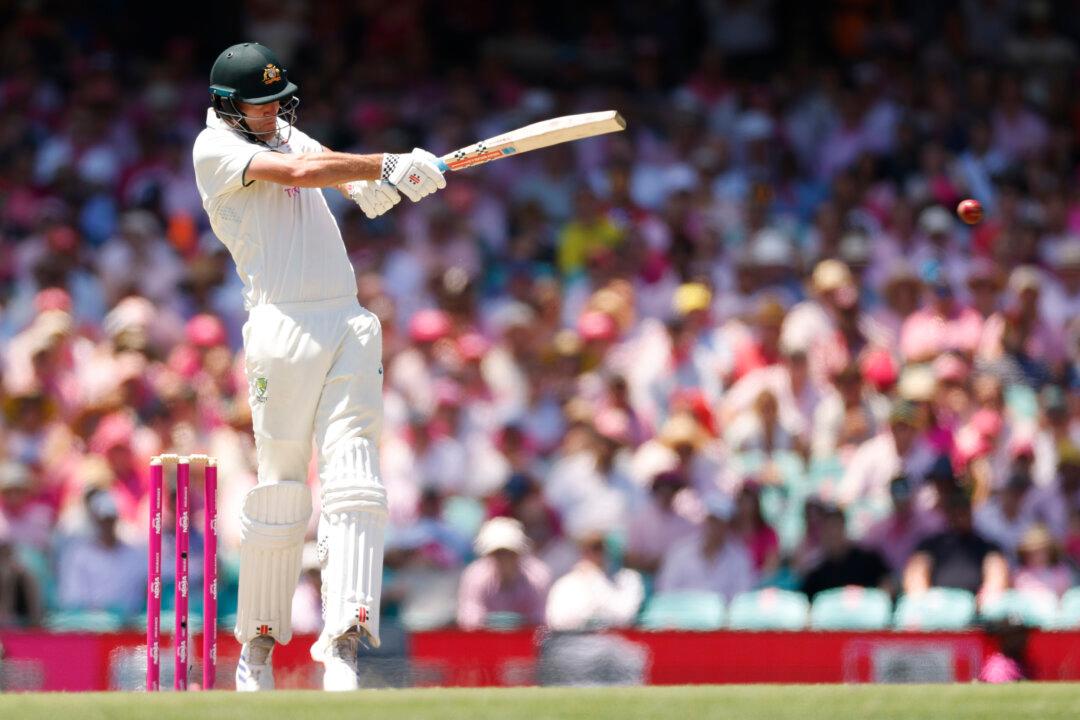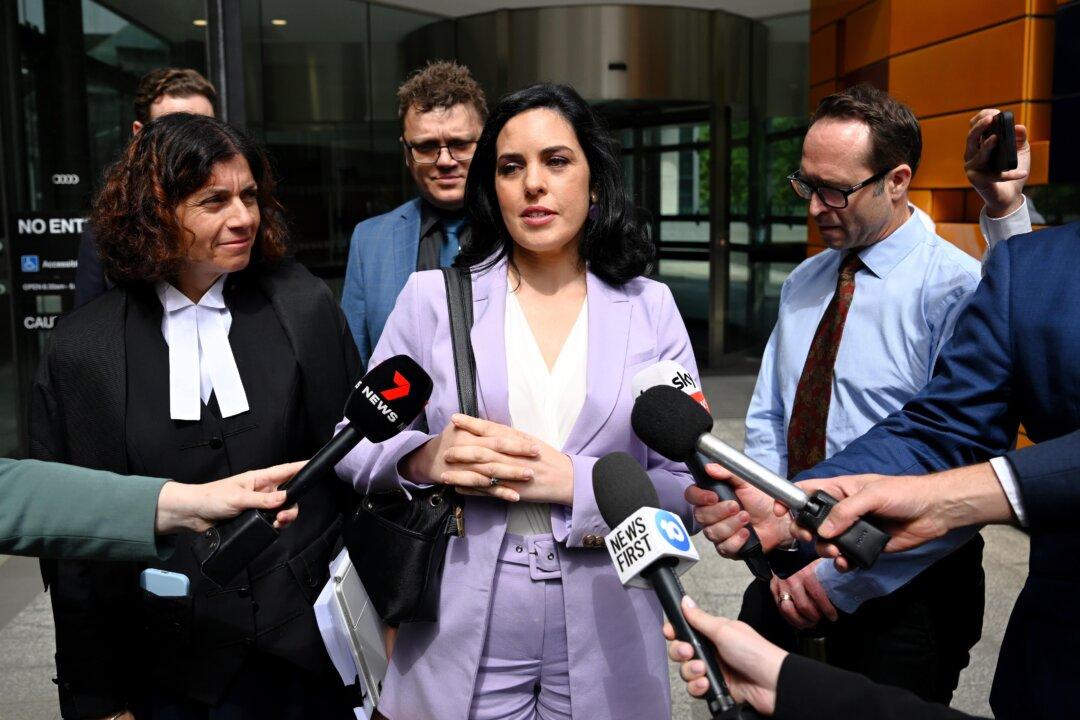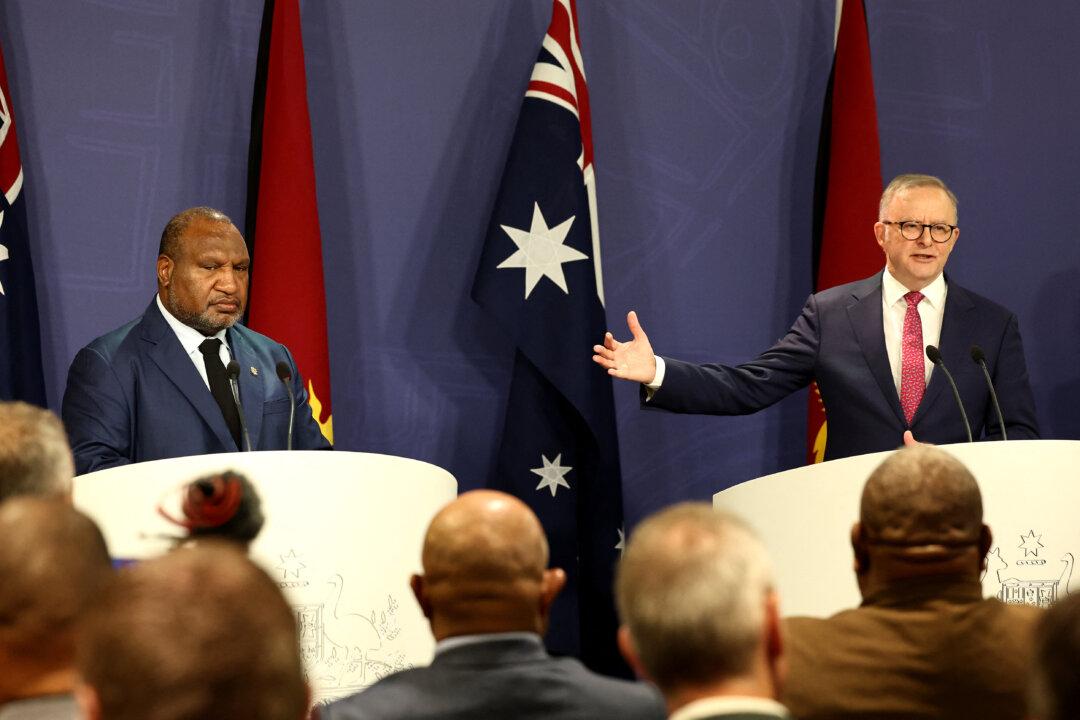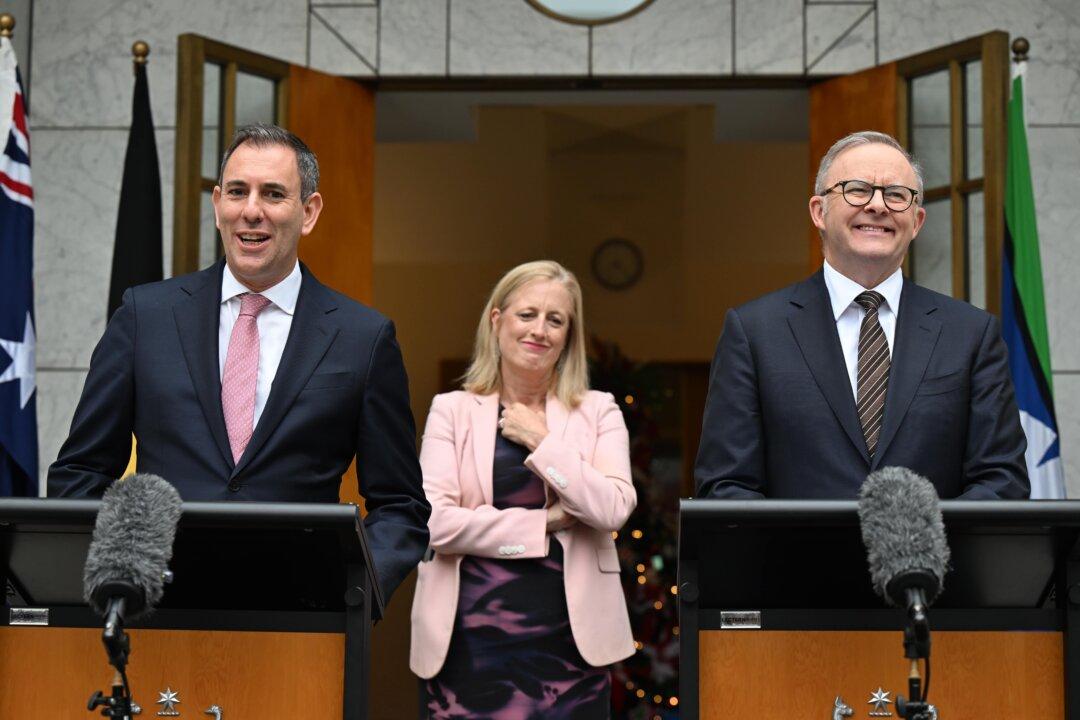The Australian federal government will pull back business and individual support payments once key vaccination milestones are reached, a move that could compel state and territory leaders to move away from readily locking down their jurisdictions each time COVID-19 cases emerge.
On Sept. 29, Treasurer Josh Frydenberg outlined a plan that would see billions in federal cash assistance phased out once 70 and 80 percent of the over 16 population is immunised.
“These COVID disaster payments, these business support payments have been emergency payments and we can’t continue them forever,” he said in a statement.
“Nor can we continue lockdowns forever. If you look abroad, the United Kingdom, Canada, the United States—countries are starting to live with COVID.”
Currently, COVID-19 Disaster Payments offer $750 per week to individuals who have lost more than 20 hours of work each week due to government-mandated restrictions.

A $450 per week payment is available for those that have lost between eight to 20 hours of work per week, while those on income support and who have lost eight hours of work per week can access $200 weekly payments.
These payments will be adjusted at each vaccination threshold.
Once a state or territory’s population reaches the 70 percent double-dose vaccination target, workers will need to reapply each week for the payments and prove they are eligible.
At the 80 percent mark, the payments will be “stepped down” over a two-week period before ending.
In the first week, a flat payment of $450 will be available for those who have lost more than eight hours of work, while those on income support will receive $100.
In the second week, the payment will be brought in line with JobSeeker at $320 per week for those who have lost more than eight hours of work.
Currently, 1.5 million Australians under lockdown in New South Wales, Victoria, and the Australian Capital Territory are receiving payments.
Australian Council of Social Service CEO Cassandra Goldie said there was a gaping hole in income support payments for people hardest hit by the pandemic.
“It’s unconscionable to be cutting off payments to people on low-payments when the government is not ensuring safe vaccination rates,” she told AAP.
Senior Labor Party member Tanya Plibersek was concerned support could be withdrawn from areas still under restrictions.
“We don’t want to see support withdrawn from those areas too quickly,” she told Sky News on Sept. 29.
Co-funded federal business support payments will also taper off under agreements to be decided with the states and territories.
The treasurer has also earmarked potential ongoing support for selected industries hit hardest by lockdowns and border closures, including hospitality and tourism.
The latest announcement comes as New South Wales—which has grappled with an ongoing spread of the Delta variant of COVID-19—edges towards the 70 and 80 percent vaccination target, which will see the state open up “freedoms” for vaccinated individuals.
It is also the first jurisdiction to set an official “freedom” date on Dec. 1, that will see all restrictions removed for vaccinated and unvaccinated Australians.
In response, Victorian Premier Dan Andrews has been reluctant to commit to an open date.
“I will not say to people, just wait five weeks and you will have all the freedoms. No, that is not a guarantee at all here,” he told reporters on Sept. 29.
States with lower COVID-19 infection rates, Queensland, Western Australia, the Australian Capital Territory, and South Australia, meanwhile will likely continue pushing to increase vaccination rates.
Prime Minister Scott Morrison is hopeful international borders could reopen around Christmas.
